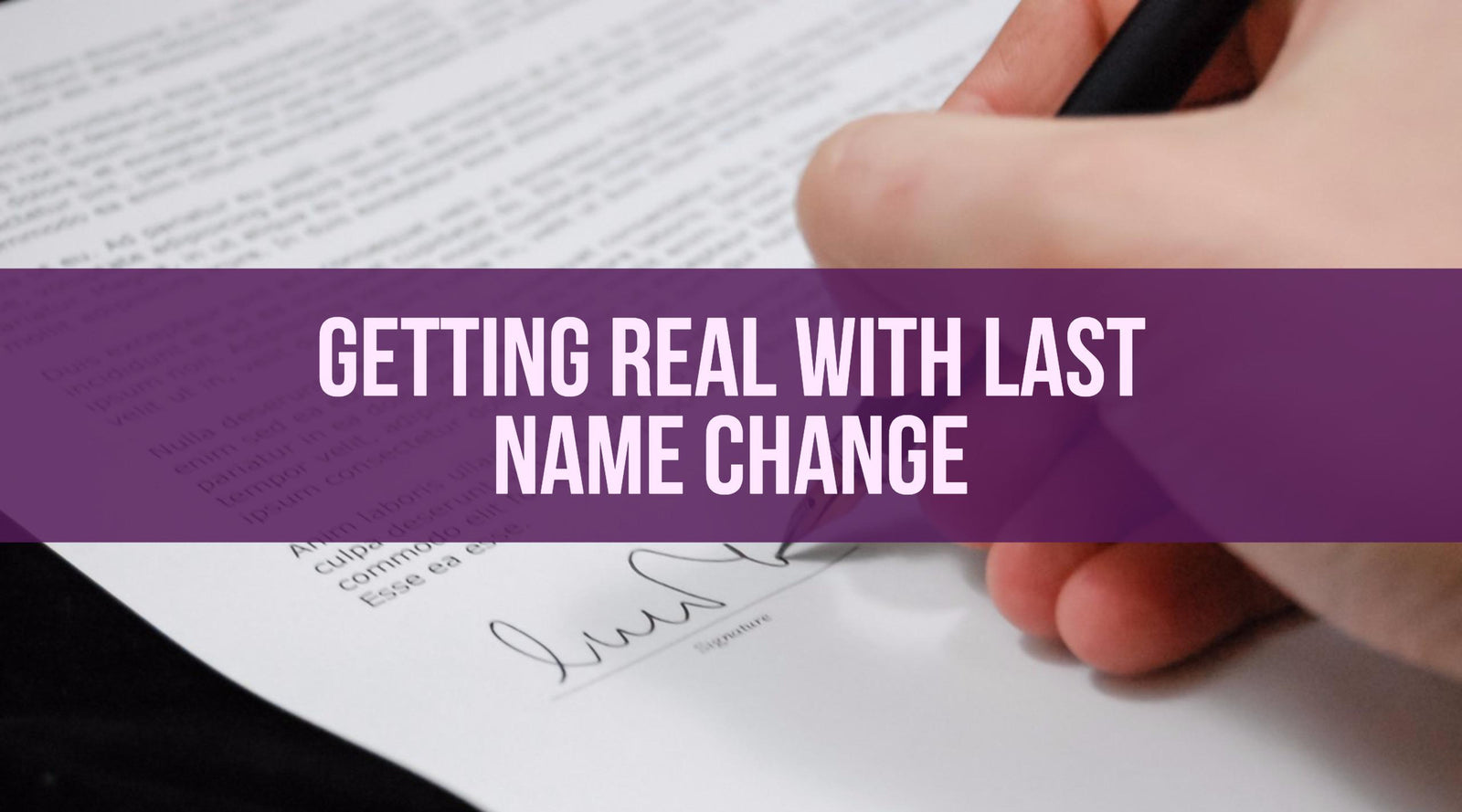Your Cart is Empty
Free Shipping and Returns on ALL U.S. orders!
Tradition requires ladies to change their last names once they get married, but nowadays, that isn't always the case.
Jessica Alba, Diana Ross, Drew Barrymore, Iman – these are only a few of the many female celebrities who didn’t change their last name after tying the knot.Click here to see a list of female celebrities who kept their maiden name after marriage.
Photo Source: Southbound Bride
The name change is a divisive issue for some couples, but for others, it doesn’t seem to affect their union. Let’s take a look at the history and the reasons behind why women change or don’t change their name.
The custom of women adopting their husbands’ surnames can be traced back to as early as the 14th century, during the Norman Conquest.
The French brought with them the doctrine of Coverture, which states that the woman is her husband’s property. Maiden women didn’t bear any surname but after marriage, they shared their husband’s surname to symbolize their “legal and spiritual unity.” In that union, it was only the husband who could vote or own property.
The custom remained unquestioned for a long time but by the 18th Century, things started to change. Women sought the power to retain their maiden name. Feminist writer Mary Wollstonecraft, who was married to William Godwin, would write her name as “MARY WOLLSTONECRAFT femme (or wife of) Godwin.”Click here to read BBC’s historical account of coverture.
However, it was in the 20th Century when the practice of married women retaining their maiden name really gained ground. Lucy Stone, a staunch advocate of women’s rights started the movement and soon after, members of the Lucy Stone Leagueadopted this practice too.
Women’s rights have come a long way since the 14th century. Although many would agree that there is still much work to be done in this department, we already see a number of women who have chosen to retain their last name without going to war with men.

Photo taken fromThe New York Times/Google Consumer Survey
This graph is taken from The New York Times’ article on women and name change.Click here to read the article.
As you can see, there’s a sharp increase between Pre-1960 and 1970, which can probably be attributed to the feminist movement during that time. It dropped noticeably again in the 1980s before the numbers ascended steadily in the 1990s onward.
First of all, there are laws and customs unique to each country. Coverture was discussed above in the context of English history and its colonial states, like USA before. There are countries that don’t offer women the choice, in the same way that there are other countries in the world where women don’t take their husbands’ last names, like China and Vietnam.
It varies per context and culture. In the American context, many women change their surnames as it is a practice that they’ve been accustomed to.
For some couples, the last name change is not a big deal. Whether or not the wives change their last names doesn’t erase the fact that they are legally married to their husbands.
There are also legal processes that are easier to expedite if you share your husband’s last name, which becomes evident when children are brought into the picture. Filing for a passport and other travel documents for children is faster when authorities see that they share their parents’ last name.
Ideally, this shouldn’t be a problem, but in general there are fewer questions to answer when you and your husband have the same surname.
The increasing number of women retaining their surnames is a product of the historical feminist movement. It’s an opportunity for women to make a stand on their identity and to show the world that their marriage doesn’t shrink their individualism.
Other women also cite convenience as a reason for them to keep their surname. They don’t want to go through the pain of changing their signatures and other documents just to accommodate their husband’s surname.
The Google Consumer Survey also found that “higher-income urban women were much more likely to keep their names.” If their name rings a bell as a single career woman, it will help their case if they still retain their own name after marriage. That probably explains why successful female celebrities still keep their maiden names even after they become wives. Their maiden names are essential to their personal branding.
Assuming that changing/keeping your surname really boils down to your choice, make sure to discuss this matter with your partner. At the end of the day, you should not begrudgingly change your identity just because custom dictates so.
Keep your motivations in check. If you decide to take your husband’s surname, don’t let him force you into it. If you want to keep your maiden name, however, don’t do it to spite your husband or as a “shallow” symbol of feminism. Do it because you really believe in the principle behind it.
Above all, don’t lose sight of the things that matter. As mentioned earlier, there are couples that don’t let this issue destroy their marriage. Whatever surname you decide to adopt, you’ll still be married at the end of the day.
